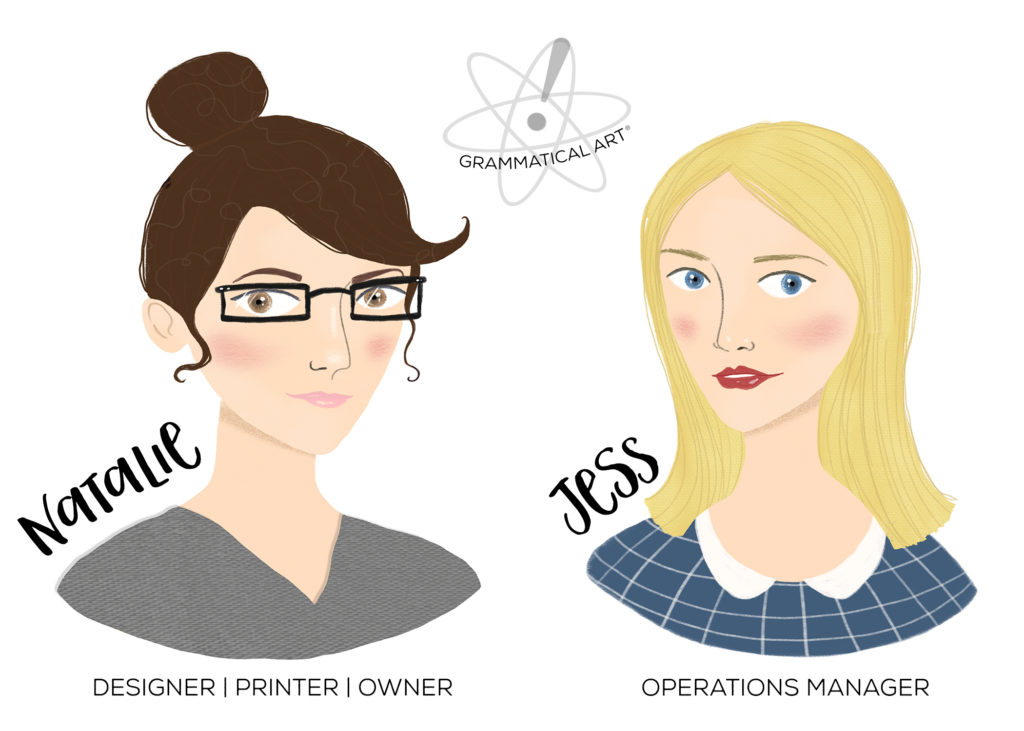Have you met Jess? If you haven’t, you should. Let me tell you about how I met Jess, because it’s actually an important part of why Grammatical Art is what it is today.
Jess and I met back in 2003 when we were undergraduates together at small liberal arts college in Ohio. I am pretty sure we met in band—I know, it’s hard to believe that we were also band nerds. I couldn’t tell you about our first interaction because I am notoriously bad at remembering details like that, but this is how a chemist and a librarian came to run your favorite nerdy business.
While it seems odd to have studied chemistry and physics at a liberal arts college, I was very fortunate to have done so. I was forced to read, write, and to present topics in and outside of my core disciplines. I had to do more than balance chemical equations and determine the probability of finding an electron in a p orbital; I had to step way outside of my comfort zone by taking humanities courses. Here, I got to meet people like Jess who could help me write my lab reports in ways that non-scientists could actually understand them. I not only learned about physical sciences, but I learned about other subject fields I wouldn’t have otherwise studied and interacted with people I wouldn’t have normally. I think this is where I finally discovered my love of language. This love would eventually help me to become who I am today and would lead me to running the business that I do.
I was a bench chemist who was looking for a creative outlet and found it in Grammatical Art. I started by creating a few designs out of grammar pet peeves and, unexpectedly, people started buying them. Now I am here, sitting in my home office, surrounded by silk screens and blank shirts, telling all of you how this small grammatical empire came to be.
I had no idea what I was going to be when I grew up, but I surely wouldn’t have told you I was going to be a screen printing chemist mom. This isn’t the path I would’ve necessarily chosen for myself in elementary school, or any other grade for that matter, but I am very fortunate to have my successful career and business, and I do believe it is mostly due to my liberal arts education. I was able to grow into things there I couldn’t have imagined, and formed friendships with super cool people I wouldn’t have ordinarily met.
Here Jess and I are, after 14 years of friendship and growth, working on this nerdy business, putting our liberal arts degrees to work in ways we never would have thought possible.
While some people may be confused by my BA in chemistry, I am proud of it. Had I not done it in this way, I never would have met Jess and Grammatical Art may have never been.




